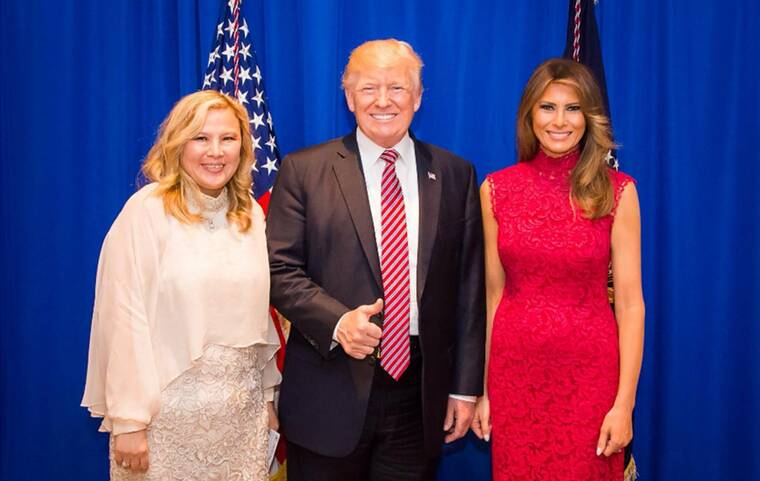A significant figure in Republican fundraising, Sherry Xue Li, has recently pleaded guilty in a sprawling $30 million scheme that promised foreign investors political access and a pathway to U.S. citizenship through fraudulent means. This complex case sheds light on the intricate web of campaign finance, foreign investment, and alleged illicit political influence, revealing the lengths to which individuals would go to exploit immigration programs for personal gain and political leverage.
The scandal gained public attention partly due to a widely circulated photograph from June 2017, showing Ms. Li alongside then-President Donald Trump and First Lady Melania Trump at an exclusive fundraising dinner. Admission to this ritzy event, held at the Trump International Hotel in Washington, came with a hefty price tag of $35,000 per plate, an event Ms. Li is accused of facilitating for a dozen foreigners, charging them each over $90,000 for the privilege and promise of access.
At the heart of the nearly decade-long operation, Ms. Li, in collaboration with her business partner Lianbo Wang, allegedly solicited more than $30 million from approximately 150 unsuspecting foreign investors. These individuals were led to believe they were contributing to a legitimate educational institute, with the ultimate promise of gaining political connections and securing a coveted path to American citizenship, a proposition that ultimately proved to be a cruel deception.
The legal consequences for Ms. Li have culminated in her Wednesday guilty plea to charges of money laundering conspiracy and conspiracy to defraud the United States. Her accomplice, Lianbo Wang, had previously entered a guilty plea to related charges in 2024 and is currently serving a five-year prison sentence, marking a significant victory for federal prosecutors in their efforts to dismantle sophisticated financial crimes.
Further investigations into Federal Election Commission filings revealed that between 2016 and 2019, Ms. Li and Mr. Wang, who were arrested and charged in July 2022, collectively funneled over $1 million into Republican campaigns and causes. A substantial portion of these contributions, specifically $600,000 in 2017, originated from the foreign donors ensnared in their scheme, directed towards a joint fundraising initiative supporting Donald Trump and the Republican National Committee.
The alleged fraud, which commenced in 2013, involved Ms. Li, Mr. Wang, and a third defendant, Guo Xuefeng, enticing international investors, primarily Chinese citizens, with promises of investment opportunities in the Thompson Education Center, a purported development project in upstate New York. However, the millions of dollars collected were not primarily invested as promised but instead diverted into bank accounts controlled by Li and Wang, used for illicit campaign contributions, lavish personal expenses, and even payments to Mr. Wang’s former spouse.
A critical component of the scheme involved leveraging the EB-5 program, which grants permanent residency to foreigners investing at least $800,000 in U.S. businesses. Prosecutors assert that over half of the investors’ capital came from individuals explicitly promised green cards through this program. Despite grand assurances, U.S. Citizenship and Immigration Services began denying visa applications for these donors as early as 2017, citing the lack of credibility in the Thompson Education Center’s business plans, leaving investors without the promised residency.
Even as the scheme unraveled, the concept of a “Trump gold card,” offering a route to citizenship for “very high-level people,” was publicly mentioned by Donald Trump in February, and Commerce Secretary Howard Lutnick later noted nearly 70,000 people on a waiting list for it. This highlights the enduring appeal and potential for exploitation within such immigration pathways, despite past fraudulent activities. Ms. Li, prior to her guilty plea, had attempted to argue that her case was politically motivated, claiming her photo with Trump made her a “target hit” and that the prosecution contradicted an executive order against “political persecution.”






Leave a Reply